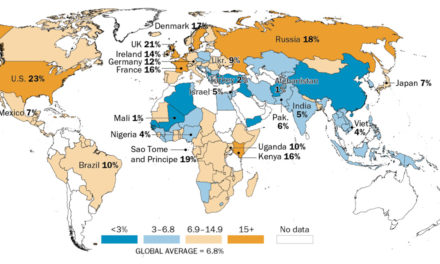It turns out parents may have more of an influence on their child’s ability to maintain deep and long-lasting friendships than merely hosting slumber parties and being their chaperone.
Researchers from the University of Virginia discovered that teenagers who have more secure family relationships end up showing more empathy to their friends as compared to those without secure familial bonds. But it isn’t just that teenagers in secure families are better at displaying empathy, as the study also found that teens were more likely to look for support from those who grew up in families with secure family relationships.
The study, published in Child Development on July 15, analyzed 184 U.S. children between the ages of 14 and 18. The teens at age 14 answered questions about their relationship with their family. Those who described their relationships as supportive and valued those bonds were rated as more secure.
Those ages 16 through 18 went through a six-minute task with their nominated closest friend in which they had to assist their best friend through a problem they were facing. From this, the study analyzed both the friend’s request for help and the ability of the teenager to provide empathic support.
The results found a “strong association” between a teen’s positive view of their relationship with their family and their ability to provide compassionate assistance to a close friend, according to a press release. It also found a mutually beneficial growth in support between the two friends, as it suggested that a friend’s “support-seeking develops alongside teens’ ability to deliver empathy, with support seeking helping empathy to develop and empathy fostering support-seeking from friends as well.”
However, this doesn’t mean that teenagers who didn’t rate their family relationships positively were doomed to be unable to provide empathic support.
“Teens who were less secure in their family relationships at age 14 showed lower empathic support for friends in early adolescence, but their empathic abilities grew over time,” said Jessica Stern, postdoctoral fellow at the University of Virginia. “What’s especially interesting is that close friends also sought out more support from securely attached teens” (article’s emphasis).
Stern recommends starting early in crafting positive family relationships if parents want their children to reap the benefits of this study.
“Investing in the quality of teens’ family relationships early in adolescence may be important for building empathy and positive interactions with peers,” said Stern. “Parenting programs, family therapy when needed, and school-based interventions that help young teens feel safe and supported in their relationships with adults – not only parents but teachers, mentors, and extended kin – may equip teens to ‘pay it forward’ in their empathy and care for others.”
Children are called to obey and honor their parents (Proverbs 10:1, Matthew 19:19, Colossians 3:20), but parents are also given a responsibility to bring up their children properly and in a way that glorifies God (1 Samuel 3:11-13, Proverbs 22:6, Ephesians 6:4). Focus on the Family offers many resources to help guide parents on how to start fostering positive familial relationships early on. In this way, you may be able to bless your children with an empathetic heart, and in doing so, glorify God.
Related Resources and Articles
Number of Children in Two-Parent Homes at Highest Point in 30 Years
Inflation Has Arrived. Here’s What it Means for Your Family.
Should We Dismantle the Family?
Is Advocating for the Mother/Father Family Bigoted?
Your Family Needs You (And You Need Them)
5 Ways to Make a Change in Momentum with Family Relationships
Photo from Shutterstock






